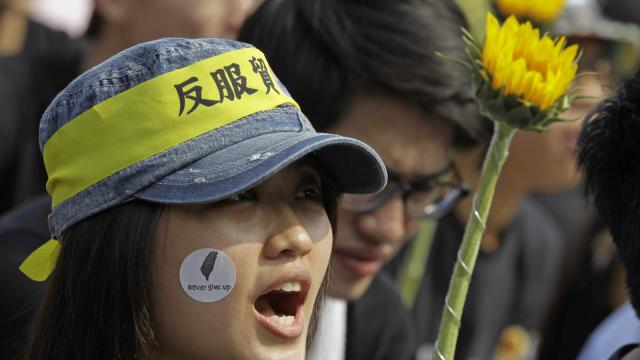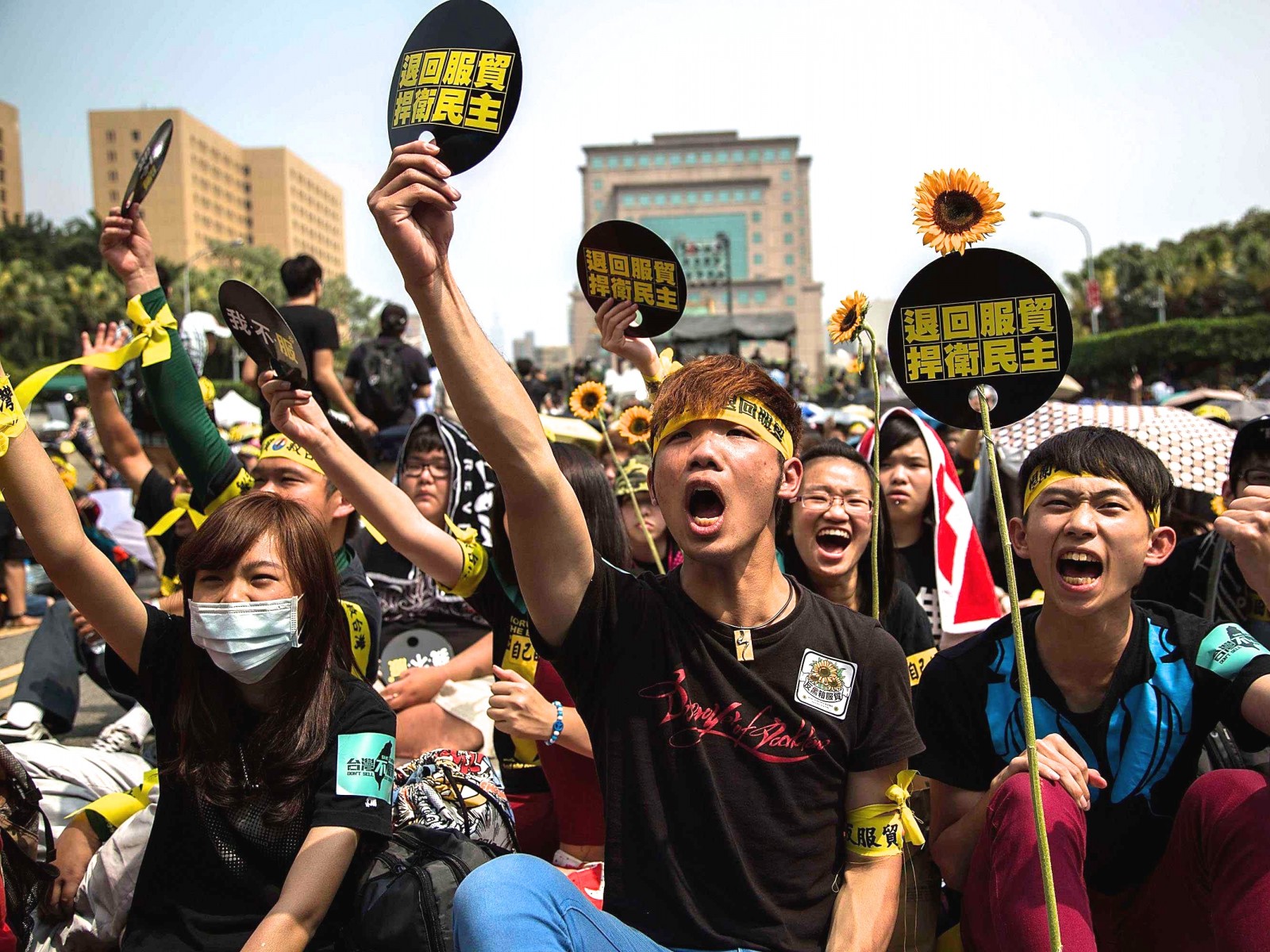
Hundreds of thousands of demonstrators gathered in the streets around Taiwan's Parliament on Sunday to voice their opposition to a trade pact with China, part of a nearly 2-week-old protest that is challenging the president's policy of moving the democratic island economically closer to China.
Lin Fei-fan, a protest organizer, estimated that 500,000 people had turned out in the biggest demonstration since the movement started. An Associated Press estimate put the number at more than 200,000, and a police estimate at more than 100,000.
Crowds dressed in black sat on one blocked boulevard, many carrying plastic or real sunflowers, the symbol of the protest movement, and wearing yellow ribbons that read "Fight for democracy, retract the service trade pact."
Several hundred mainly student protesters have been occupying Taiwan's legislature since March 18, supported by thousands outside the building.
They are protesting President Ma Ying-jeou's intention to enact a trade deal that would allow Taiwanese and Chinese service sector companies in businesses ranging from banking to beauty parlors to open up branches or shops in the other's territory.
The action was sparked by the decision by a lawmaker from Ma's ruling Nationalist Party to renege on a promised clause-by-clause review of the trade deal, which was signed by both sides last year but is awaiting ratification by Taiwan's Parliament.
On Saturday, Ma gave into students' demands to increase scrutiny of future pacts signed with China, but refused to withdraw the pact in question, saying it would deeply harm Taiwan's interests.
"I'm not against free trade, but the government should come up with policies to protect local industries before they open the door," said a protester, Philip Lihan, 30, a graphic designer in Taipei originally from Chiayi in southern Taiwan.
"I've been sitting-in near the legislature every day after work until midnight," said Lihan, who added that he had been working with other artists to create murals in support of the protest.
Flower shop worker Li Li-ming took a four-hour bus ride from her home in Tainan city in southern Taiwan to the capital Sunday morning with her children, aged 7 and 9, to take part in the protest.
"This is the first time that I have participated in such a big demonstration and I am here because this is a demonstration led by neither party, but students," said Li, 38. "I just came back from Hong Kong. Everything is getting so expensive there. I'm afraid Taiwan will become like Hong Kong."
Opponents of the pact say it would cost Taiwan tens of thousands of jobs because small businesses on the island will be unable to compete with cash-rich, mostly state-run Chinese companies intent on investing in Taiwan. They also say it would give a big boost to China's efforts to bring the island, which split from the mainland 65 years ago, under its control.
The protest is the most serious challenge to Ma's signature policy of moving Taiwan ever closer to China by tying their economies together. Since he took office in May 2008, he has superintended a drastic upsurge in the number of cross-strait flights, and pushed through more than a dozen commercial agreements with China, including a partial free trade deal that slashed tariffs on scores of items in 2010.
China's chief negotiator with Taiwan, Chen Deming, told a forum in Guangzhou on Sunday that he would be "deeply regretful" if the trade pact failed, and that it could boost Taiwan's economy, according to China's official Xinhua News Agency.
3 WAYS TO SHOW YOUR SUPPORT
- Log in to post comments















